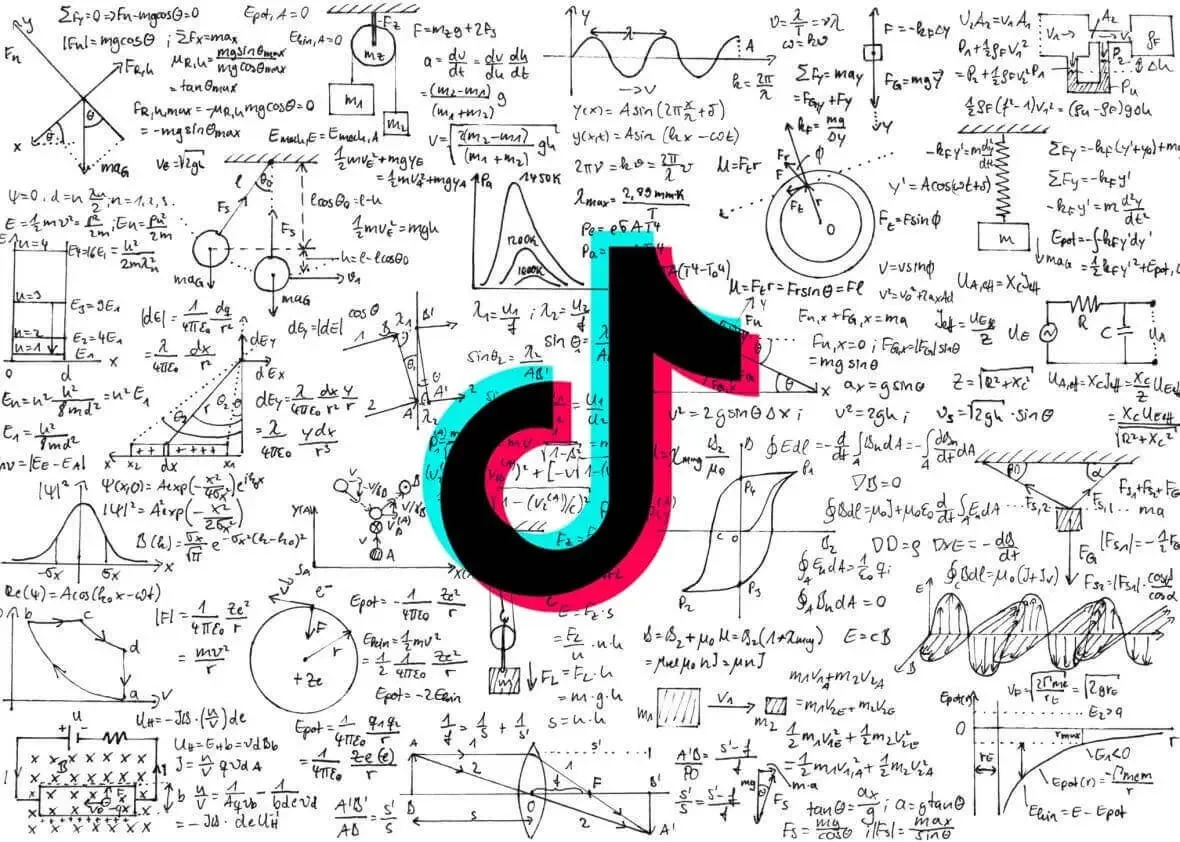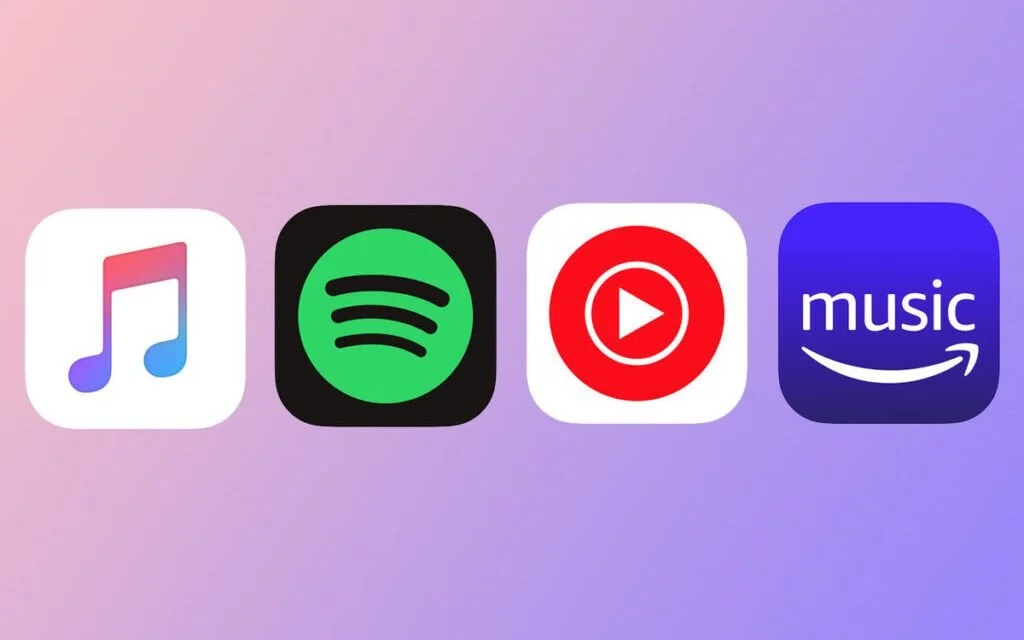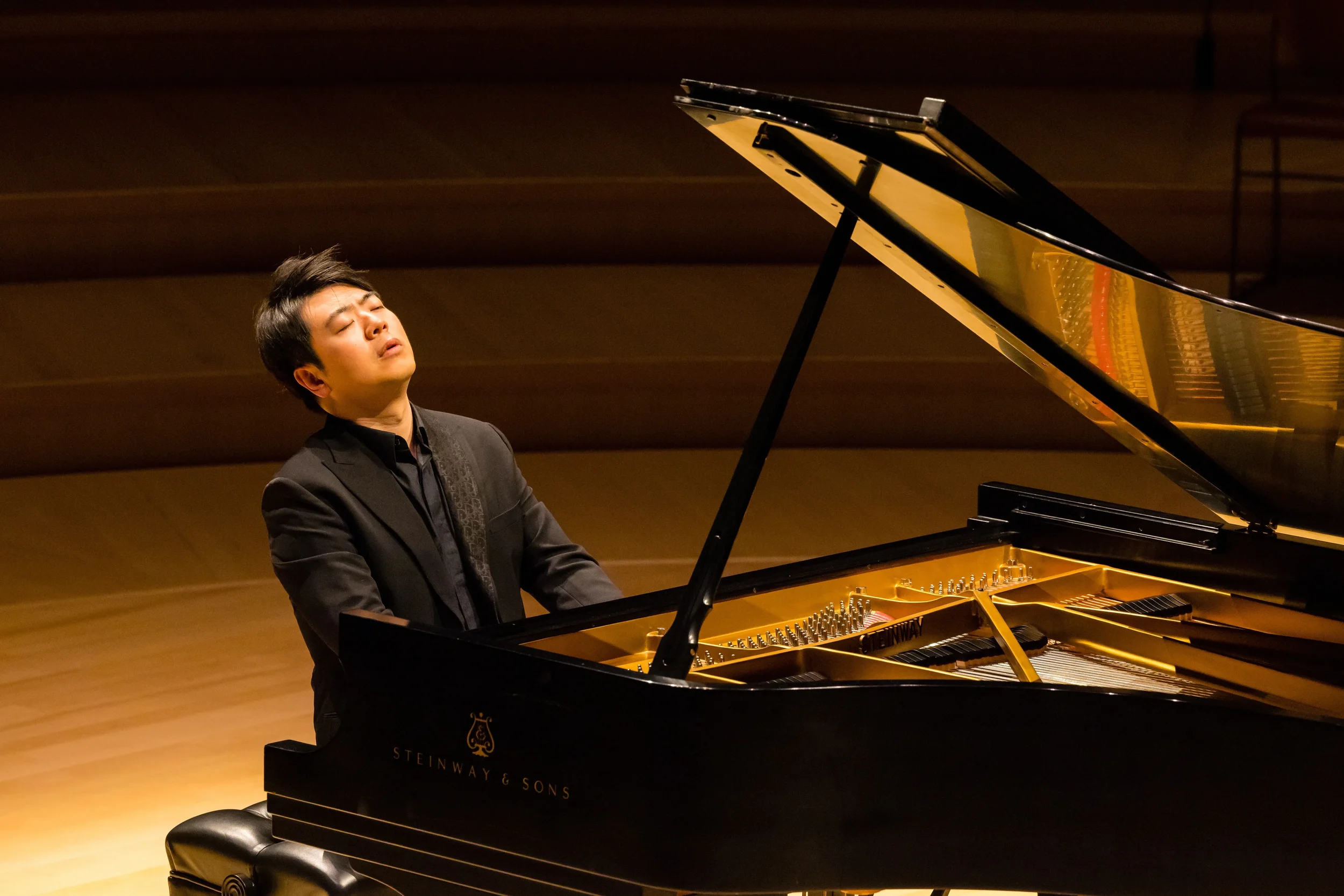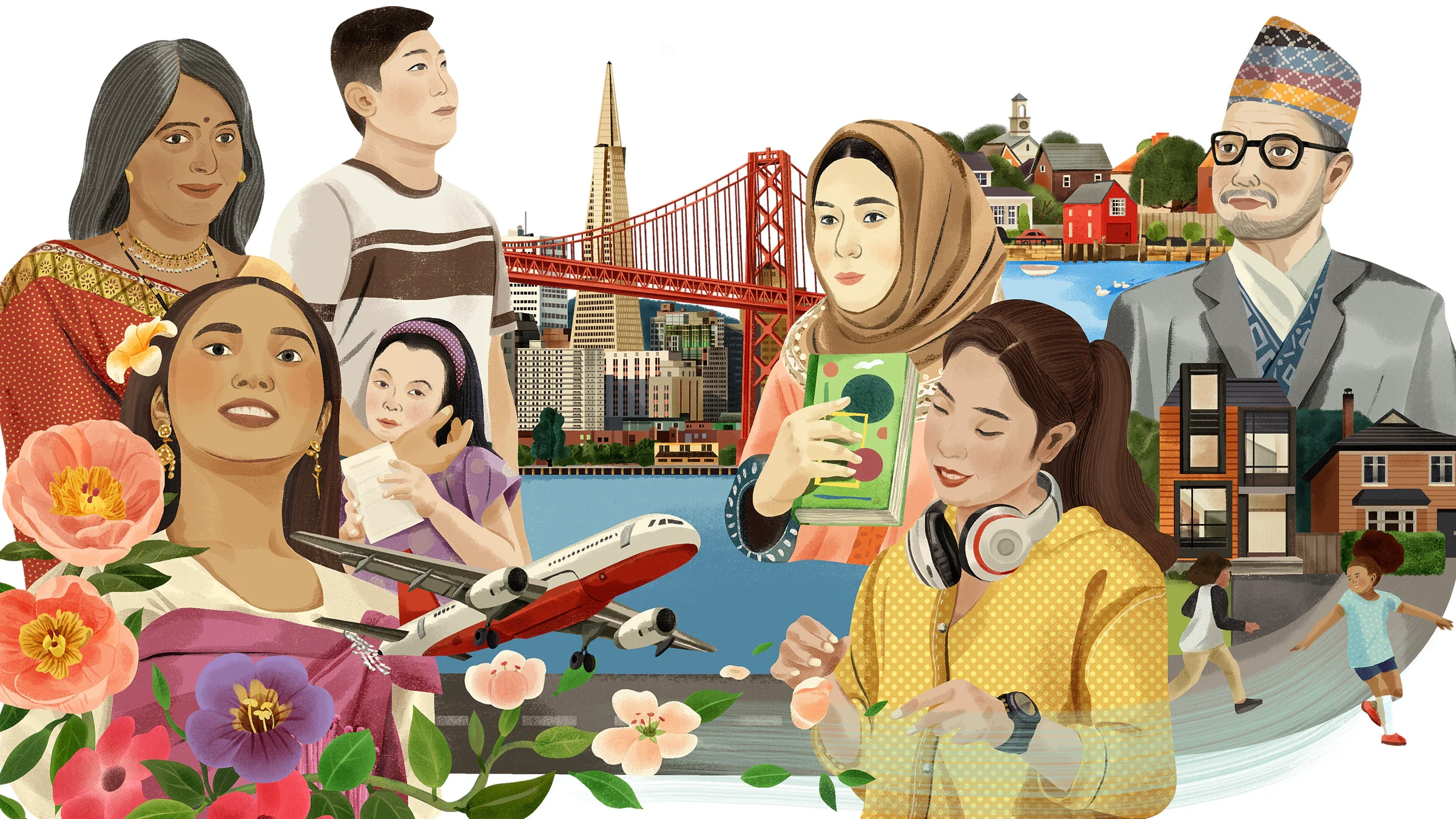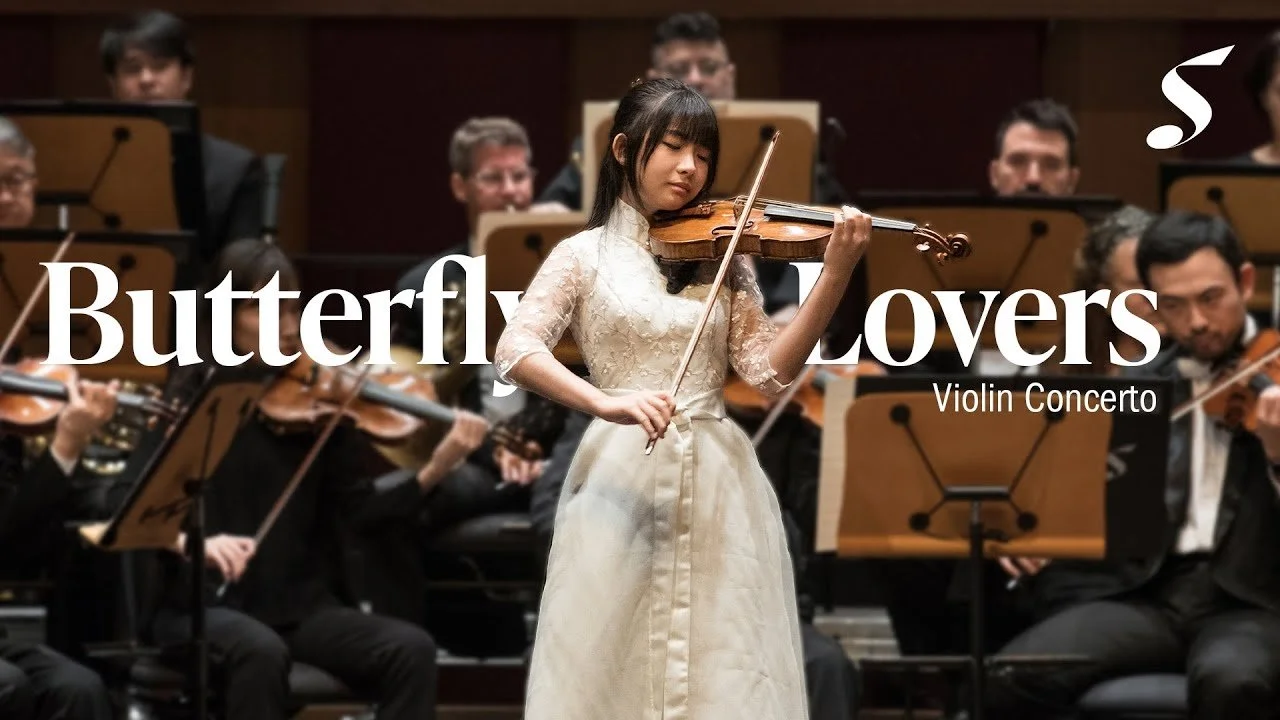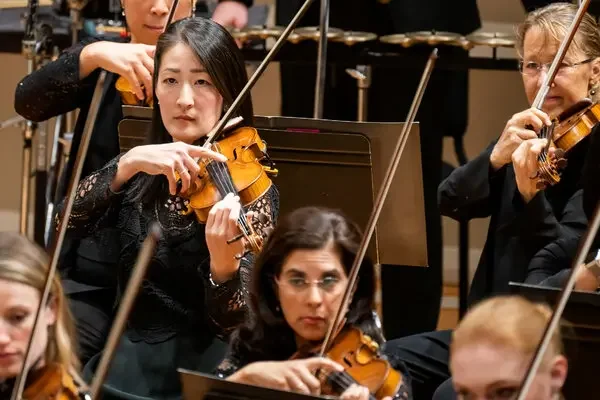The Impact of AI in the Music Industry
As artificial intelligence has been changing industries across the globe, I have begun to wonder how the music scene will be affected. In a recent Wall Street Journal Tech News Briefing interview, Recording Academy CEO Harvey Mason Jr. shared his perspective on how AI may shape the future of music for better and worse.
As artificial intelligence has been changing industries across the globe, I have begun to wonder how the music scene will be affected. In a recent Wall Street Journal Tech News Briefing interview, Recording Academy CEO Harvey Mason Jr. shared his perspective on how AI may shape the future of music for better and worse.
Mason points to three major risks: AI models trained on copyrighted songs without permission, unauthorized cloning of artists’ voices, and the flood of AI-generated tracks that could overwhelm listeners and bury human-made music. These threats raise urgent questions about ownership, creativity, and authenticity.
However, Mason also acknowledges the opportunities. AI tools could help musicians overcome creative blocks, generate variations on melodies, translate songs into new languages, and give non-musicians the chance to flesh out ideas without needing a full band. I love the idea that AI could help break through writer’s block or allow a songwriter without production skills to hear their melodies come to life.
Still, Mason insists that human artistry carries something irreplaceable: authentic emotion and lived experience. Whether audiences will continue to value this human connection in an era of endless AI music remains to be seen. As Mason puts it, the future of music depends on whether technology enhances creativity or dilutes it.
This podcast raised a few questions for me. If we can’t tell whether a song is made by a person or a program, do we lose part of what makes it special? I also wonder if audiences will actively seek out authenticity, as Mason suggested, or if convenience and novelty will win.
The Impact of Algorithms on People’s Entertainment
This week I read an interesting paper by Myojung Chung and John Wibhey, published in the Harvard Kennedy School Misinformation Review, on how to combat misinformation perpetuated by algorithms.
This week I read an interesting paper by Myojung Chung and John Wibhey, published in the Harvard Kennedy School Misinformation Review, on how to combat misinformation perpetuated by algorithms.
Chung and Wibhey reference a new type of digital divide that is developing. The digital divide, originally referred to the gap between people who have access to modern information and communications technology (ICT) and those who don't. However, Chung and Wibhey further explore a new type of digital divide that is developing - one based on knowledge of algorithms.
Algorithms increasingly control information flow on social media, determining what users see in their feeds. Social media algorithms are designed to filter and present online content in ways to maintain user engagement and retention which often results in the echo chambers where users are constantly fed misinformation that aligns with users’ existing biases and beliefs and can have disastrous consequences. Chung and Wibhey provide an recent example I had not been aware of, where Facebook's algorithm pushed out hate-filled misinformation targeting the Rohingya people in Myanmar, which contributed to their genocide in 2017.
There is already scholarly research that explores the divide in knowledge of content algorithms. It is unevenly distributed based on socio-demographic backgrounds similar to civic, political, or economic knowledge, and can impact the ability of people to evaluate information and make informed decisions. Interestingly, Chung and Wibhey found that the socio-demographic factors most predictive of algorithmic knowledge differed by country.
In the United States, political ideology and ethnicity were the primary predictors of algorithmic knowledge. Age, political ideology, and social media use were the significant factors in the United Kingdom. In South Korea, the main predictors included age, gender, education, and social media use, whereas in Mexico, only education and social media use were associated with algorithmic knowledge…
In the United States and the United Kingdom, where political ideology was a major factor, political polarization is at all-time highs with differing levels of knowledge between liberals and conservatives, pointing to the dangers of algorithmic knowledge on public discourse. While the specific predictors varied across countries, Chung and Wibhey found that algorithmic knowledge was unevenly distributed across education level, ethnicity, gender, and political ideology.
Chung and Widbey’s study also provides data supporting the idea that individuals with greater algorithmic knowledge are more inclined to take action against misinformation. When people understand that social media algorithms provide information based on their previous behaviors and preferences, they may be more aware that diverse ideas and information are in effect curated out and that they risk being trapped in echo chambers. This knowledge can lead them to actively seek out opposing views and avoid spreading misinformation when they find it. In contrast, research has shown that people who lack algorithmic knowledge - such as elderly populations or less educated - were more likely to spread misinformation, and more vulnerable to harm.
Implications
Currently, there are a variety of approaches being pursued to fight the spread of misinformation. These include steps to moderate or regulate platforms, fact-checking content, and labels to indicate the quality of the content. However, Chung and Widbey’s research suggests the potential for algorithmic knowledge to play a role in fighting the spread of misinformation. Programs to improve general knowledge and literacy around algorithmic mechanisms, particularly with vulnerable populations such as the elderly and uneducated, could be a promising approach.
A Case for Musical Privacy
In exploring the intersection of technology and music, one area that raises questions in my mind is how music is distributed and consumed today. In his essay A Case for Musical Privacy, Richard Randall examines streaming music services (“SMuS”), the economic model they rely on, and what that means for users of those services: the listeners.
In exploring the intersection of technology and music, one area that raises questions in my mind is how music is distributed and consumed today. In his essay, A Case for Musical Privacy, Richard Randall examines streaming music services (“SMuS”), the economic model they rely on, and what that means for users of those services: the listeners. Streaming music services encompass many technological, economic, and human issues, many of which are shared with other streaming media services and social networking sites.
Randall’s foundational argument rests on the concept of prosumption. A hallmark of Web 2.0, prosumption combines consumption and production, where users are simultaneously consuming content and producing content at the same time. People create tweets, share photos, and engage in online discussions, effectively building the content that attracts and retains other users. People can enjoy the convenience and personalized experiences offered by platforms like Spotify, Pandora, and social media, while the platforms’ business models rely on that data to be analyzed and sold to third parties for targeted advertising.
Listeners’ choices and preferences become data points to identify patterns in human behavior. Randall references an article by Natasha Singer, “Listen to Pandora, and It Listens Back,” where she warns that musical preferences can reveal intimate details about people’s lives, including political beliefs, religious affiliations, and sexual orientations. Musical tastes are not arbitrary. They reflect identities, emotions, and social connections. Listeners rarely know how their information will be utilized and by whom, which raises serious privacy concerns. Randall argues there is a need for greater transparency in data collection and usage practices.
However, in addition to analyzing prosumers’ preferences, data algorithms also push content to users. It raises questions of how that knowledge might be used to influence and shape people’s thoughts and who should have that power and influence. The internet, once a frontier of free information, has evolved into a complex ecosystem where our every click, like, and listen is meticulously tracked and monetized.
Music in the Workplace in the Digital Age
I recently started reading a collection of papers on how technology is shaping music and culture. “21st Century Perspectives on Music, Technology, and Culture: Listening Spaces (Pop Music, Culture and Identity)”, edited by Richard Purcell and Richard Randall explores how advances in technology are impacting how people interact with music and each other.
I recently started reading a collection of papers on how technology is shaping music and culture. “21st Century Perspectives on Music, Technology, and Culture: Listening Spaces (Pop Music, Culture and Identity)”, edited by Richard Purcell and Richard Randall explores how advances in technology are impacting how people interact with music and each other.
I found Kathy Newman’s paper, Headphones are the New Walls: Music in the Workplace in the Digital Age, a fascinating exploration of something as simple as headphone use in the modern office. Modern office design has emphasized open work spaces and workers have responded by listening to music through headphones, not only because they want to, but also to maintain their personal space and sanity. With physical walls being removed, a software engineer described headphones as the new walls.
Newman’s article traces the history of music at work as outlined by Marek Korczynski a sociologist in his seminal work Social Theory at Work. Korczynski noticed that very little pop music today has lyrics about work even though most adults spend the vast majority of their time at work. He tracked how before industrialization, music and singing were essential parts of working. Singing was often used by workers to keep time in the field or even sailors to coordinate their activities on ships. During industrialization, this relationship changed as machines, such as time clocks, were used to keep time and singing was viewed as disruptive. Music also became more commoditized as it became something people could purchase, rather than having to produce themselves through singing.
A new field actually emerged to study how music could impact worker productivity. By 1972, Newman argues, there was a broad consensus that music enhanced productivity for factory workers. But there arose the question of what impact music had on white-collar office workers. Did it enhance productivity? What kind of music? It was during this period that the famous study about the “Mozart Effect” was conducted. It stated that listening to classical music enhanced the ability of children and the elderly to perform tasks better. In the years that followed, women listened to Mozart during pregnancy to try to enhance their child’s development. Newman even noted that there was one type of music that was universally viewed as not having a positive impact - co-workers singing out loud.
While there is research that supports both sides of the argument about music’s impact on worker productivity, one recent change has been the proliferation of personal listening devices and open workspaces. Company managers in general would prefer workers not to have headphones on, while workers prefer to have some degree of control over their work environment. What is most interesting for me about this paper is that I always thought of music as something that brought people together. It created a shared experience and could be used to coordinate activities or to rally people (as in protest movements). Ironically, it is now being used by individuals to create walls and private spaces in an environment designed to enhance collaboration and cooperation.
The "Stereotype Promise": How Policy and Perception Shape Asian American Success
As I explored the disproportionately high representation of Asians and Asian Americans in the world of classical music, I ran across an article that explores a similar phenomenon in another area of society: the disproportionately high representation of Asian Americans in higher education.
As I explored the disproportionately high representation of Asians and Asian Americans in the world of classical music, I ran across an article that explores a similar phenomenon in another area of society - the disproportionately high representation of Asian Americans in higher education. Jennifer Lee and Min Zhou's article, "From Unassimilable to Exceptional," explores some of the reasons behind that phenomenon.
The authors begin by noting that many Asian immigrants to the United States are highly educated and represent a select group within their countries of origin. This was a direct result of the Immigration and Nationality Act of 1965, which, amongst other changes, removed restrictions on immigration based on country of origin and emphasized specialized skills. This change in policy resulted in an influx of highly educated people from Asia immigrating to the US. Lee and Zhou argue that this "positive selection" of immigrants results in the transmission of a culture that values education, often accompanied by supplementary educational practices, from their home countries.
Lee and Zhou further argue that the positive stereotypes arising from the success of Asian Americans become a form of cultural capital, creating a "stereotype promise" that enhances the performance of Asian American students. This "promise" can act as a self-fulfilling prophecy, motivating students to live up to the positive expectations associated with their group.
Finally, teachers, witnessing the success of Asian American students, may develop a bias towards future Asian students, further perpetuating the cycle. This positive feedback loop reinforces the stereotype and contributes to the continued success of subsequent generations. Crucially, Lee and Zhou demonstrate that this phenomenon isn't simply a matter of cultural norms, as Asian immigrants in Spain do not experience the same level of success, suggesting that the "stereotype promise" is specific to the American context.
This analysis raises some interesting questions:
Why don’t Asian immigrants in Spain not experience the same level of success as Asian immigrants in the US? Does this have to do with Spain’s immigration policy (ie. is it a different population that immigrated to Spain vs. the US), or are there systemic differences in Spain that lead to this result?
This article also highlighted for me the importance of public policy and how it can impact the migration of people, values, and culture across borders that can shape a country for decades afterwards.
Lee, Jennifer, and Min Zhou. “From Unassimilable to Exceptional: the Rise of Asian Americans and ‘Stereotype Promise.’” New Diversities 16, no. 1 (2014): 7–22.
Stereotypes in Classical Music: How Asian Musicians are Perceived
While most signs point toward the decline of Western art music in Europe and the United States, the participation of Asians and Asian Americans is bringing new life and energy to classical music.
While most signs point toward the decline of Western art music in Europe and the United States, the participation of Asians and Asian Americans is bringing new life and energy to classical music. As Mina Yang in her paper, “East Meets West in the Concert Hall: Classical Music, Imperialism, and Asian Identity” describes it:
Even as critics in the West express doubt over the continuing vitality of classical music in the face of shrinking orchestra budgets, aging and dwindling audiences, and sinking record sales, Asian and Asian Americans have invaded the conservatory and the concert hall in numbers that are impossible to ignore.
Statistics show that Asians and Asian Americans now make up thirty to fifty percent of the student body at leading music schools and departments, with these percentages often higher at the pre-college level.
However, the strong presence of Asians in classical music has resulted in certain portrayals of those musicians that are not always positive. Jenni Johanna Leppanen's master's thesis, "The Unspoken Pressure of Tradition," offers a critical analysis of how East Asian classical musicians are represented in prominent European classical music magazines. Her research reveals four recurring archetypes: the Invader, the Asian, the Virtuoso, and the Bridge Builder, each carrying its own set of implications.
Leppanen's analysis reveals that the "Invader” archetype often employs warlike language to describe the rise of Asian classical music, creating a sense of threat. Phrases like "the Chinese Musical Explosion," "the China Boom of Classical Music," and "Revolution in the East" (Leppanen, 65) exemplify this trend. Paradoxically, this portrayal often coexists with a tendency to infantilize Asian musicians, labeling them as child prodigies even in adulthood, thus diminishing their seriousness and mature artistry.
The second archetype, "the Asian," reduces individual artists to representatives of their entire nation of origin. This labeling, particularly prevalent in competition coverage, disregards the nuances of an artist's background, including where they lived, grew up, or received their musical training. It erases individuality and reinforces a monolithic view of Asian identity.
The "Virtuoso" archetype focuses on technical prowess, often at the expense of artistic depth. Asian performers are frequently described as possessing "rank virtuosity," implying technical perfection devoid of soulful interpretation. This stereotype can lead to talented musicians being dismissed as simply fitting the mold of the "typical Asian performer," overlooking their unique artistic contributions.
Finally, the "Bridge Builder" represents a more positive portrayal. This archetype acknowledges the cross-cultural experiences of Asian musicians and celebrates their role in broadening access to classical music. Leppanen highlights an article about composer Unsuk Chin, noting that it "suggests that Unsuk Chin is a composer who does not need geographical attributes to define her profession" (Leppanen, 86). This suggests a move away from identifying her through ethnicity and towards recognizing individual talent.
Leppanen's work poses a couple of interesting questions for me:
Are there stereotypes of similar strength/prominence associated with performers of other cultures? Leppanen's research focuses specifically on East Asian musicians. Investigating how performers from other cultural backgrounds are represented in Western media could reveal whether similar stereotypes exist and how they might differ. Are there comparable archetypes for Black classical musicians, for example? Or for musicians from Latin America?
Was it always the writer’s intention to portray the Asian performer under one of these archetypes? It's unlikely that writers consciously set out to pigeonhole musicians into these categories. However, unconscious biases and ingrained cultural assumptions can influence language and perpetuate stereotypes.
Are Asian musicians aware of these stereotypes and does it affect their performance? For example, would a musician attempt to play a piece overdramatically to try to avoid the stereotypes of being a virtuoso.
Do these types of stereotypes trickle down to amateur and youth levels?
Asian American Identity and Classical Music as Cultural Capital
This week I read a fascinating paper by Grace Wang “Interlopers in the Realm of High Culture: ‘Music moms’ and the Performance of Asian and Asian American Identities,” about the role Asian and Asian American parents play in their children’s participation in classical music.
This week I read a fascinating paper by Grace Wang “Interlopers in the Realm of High Culture: ‘Music moms’ and the Performance of Asian and Asian American Identities,” about the role Asian and Asian American parents play in their children’s participation in classical music.
Wang conducted interviews with Chinese and Korean parents at the Juilliard Pre-College program, where she found Asian immigrants had brought their positive view of Western art music and all the attributes of its cultural capital with them. They felt this cultural capital was needed, in part, to counteract the racist structures experienced by Asian Americans. One of the parents of an Asian American pianist that Wang interviewed asserted, “... they have so many difficulties living in America. Being minorities, they have to be somebody” (G. Wang 898). With this informant in mind, Wang argues that the belief that Western art music is cultural capital partially stems from Asians in America feeling the need to prove their social status due to the way they are negatively perceived by Americans because of language barriers and racist preconceptions.
They viewed participation in classical music as a way to enhance upward social mobility and distinction. Wang even found that many parents viewed amassing the cultural capital of Western art music as one way to measure socioeconomic gains, and broadly linked the growing popularity of classical music among Chinese and Koreans with the “economic ascension of East Asian nations” (G. Wang 895).
I found this paper interesting for a couple reasons. For me it raised the question of whether Asian American musicians viewed classical music as a form of cultural capital or whether that association was primarily driven by perceptions brought over by immigrant parents from Asia. Doing another layer down, how do the musicians themselves perceive classical music and why do they play? And in a broader societal context does the general American public ascribe the types of positive attributes (or cultural capital) that Asian immigrants associate with classical music?
Wang, Grace. “Interlopers in the Realm of High Culture: ‘Music moms’ and the Performance of Asian and Asian American Identities.” American Quarterly, vol. 61, no. 4, Dec. 2009, pp. 881–903.
Labeling Music: Context and Culture
Digging further into the idea of how music is labeled, I read an essay by Emily Yun Wang , which explored the importance of how music is used and whether that can impact how we label it.
Digging further into the idea of how music is labeled, I read an essay by Emily Yun Wang , which explored the importance of how music is used and whether that can impact how we label it.
Wang’s article introduces the “Butterfly Lover’s Concerto'' a Violin concerto composed by two students at the Shanghai Conservatory, which blends Chinese and Western elements. This piece, instantly recognizable to many Chinese American violinists, including Wang herself, draws its inspiration from the beloved Chinese folktale of Liang Zhu. This tragic love story, addressing themes of gender and class, culminates in the lovers' transformation into butterflies, embodying a powerful message of overcoming social barriers and conventions. The piece notably was adapted into an award-winning movie soundtrack that played a role in activism across Toronto’s Chinese diaspora. You can listen to a recording here.
During the COVID lockdown, she heard the concerto being played at a local park and found a diverse group of seniors practicing Tai Chi to the music. For them, the piece had no historical or cultural context, but was merely the soundtrack that helped them remember what positions to move to next and how long they had to hold each pose for. This unexpected context prompted Wang to reflect on the diverse ways in which a single piece of music can resonate with different audiences. It caused Wang to wonder, “How do [the listener’s] projections and imaginations move her, and how do mine move me? And what new ways of listening and knowing might exist in the differences between our movements?” (Wang 581).
As I read the article I thought about how context impacts music. Does it influence what kind of music it is? How do we label it? Is it even important to the listener how music is labeled or what the historical, cultural or social context is? If so, why? Does the labeling of music influence our perception and experience of it? Does it shape our expectations? Does it impact our willingness to engage with the music?
It also made me wonder about the unintended uses of music. How does music transcend its intended context and find new meaning in unexpected settings? Does this enrich the music itself? Does the interaction between different cultures reshape and revitalize artistic traditions? Does this create a new, hybrid form of classical music? This also brought up the idea of classical music being reborn through Asian American influence.
Yang ultimately concludes her article by asserting that, despite the Chinese history and musical elements, the Butterfly Concerto can be considered American music due to the purpose it serves in her local community.
Wang, Yun Emily. “Doing Tai Chi with ‘American Music.’” American Music 40, no. 4 (Dec. 2022): 576–82
The History and Impact of Asian Participation in Classical Music
Over the past few weeks, as I’ve dug into my summer project, I ran across an article by Mina Yang, titled “East Meets West in the Concert Hall: Classical Music, Imperialism, and Asian Identity,” that provides some context for why so many Asians and Asian Americans are involved in classical music.
Image Courtesy of The New York Times
Over the past few weeks, as I’ve dug into my summer project, I ran across an article by Mina Yang, titled “East Meets West in the Concert Hall: Classical Music, Imperialism, and Asian Identity,” that provides some context for why so many Asians and Asian Americans are involved in classical music. It traces the complex history of Western classical music’s adoption in East Asia through periods of imperialism and postcolonialism.
Yang provides a concise summary of the imperialist origins of Western (classical) music in China and Japan, noting that, while initial contact occurred in the 1600s, the spread of Western music didn't take hold until later, coinciding with internal and external modernization efforts.
In Japan, the Meiji Restoration, which began in the 1860s, embraced Western culture and education. Classical music became synonymous with modernity and the perceived economic advantages of Western societies. This association spread to Korea and Taiwan during Japan's imperial expansion before World War II.
In China, Western music gained traction during the May 4 Movement of 1919, but initial resistance from the general populace hindered its widespread acceptance. The Cultural Revolution under Mao Zedong further suppressed Western music, outlawing its performance and study. However, after Mao's death, classical music experienced a resurgence. Again, similar to the experience in Japan, Western music was associated with prosperity and modernization as the success of Asian performers in this field provided "cultural validation to enhance the more quantifiable economic gains."
With this historical backdrop, Yang notes the significant representation of Asians, particularly in American classical music today. However, the crux of Yang’s paper was really about the role of Asian identity in the world of classical music. Despite the "model minority" stereotype and significant Asian representation in American classical music, Yang points out the persistent lack of Asian individuals in executive positions within the field. She argues that "because of historical power imbalances and the origination myths of classical music, it is difficult for Asians and Westerners alike to get beyond the idea that Asian performers merely reproduce or mimic Western creative genius" (Yang, 16). Despite the prevalence of Asians and Asian Americans in the world of classical music, they are still viewed as some form of outsiders participating in Western activity.
She goes on to raise interesting questions like: What would define Asian American music (and what factors influence how music is labeled)? Is it the composer's ethnicity, musical style, subject matter, audience, or a combination of these factors? For example, could a piece composed by an Asian American, incorporating both Western classical elements and traditional Asian instruments, be considered "Asian American music"? What about a Western-style piece composed by an Asian American about their experiences navigating two cultures? The lines become blurry. The way music is labeled is influenced by a variety of factors, including:
The creator's identity: The composer's or performer's background often plays a significant role in how their music is categorized.
Musical style: The use of specific instruments, melodies, and harmonies.
Lyrical content: Lyrics that address specific cultural experiences or historical events.
Audience: The communities that engage with the music can also shape its cultural meaning.
Marketing and industry classifications: Record labels, radio stations, and other industry players often categorize music based on perceived market demographics.
Ultimately, the labeling of music is a complex and often contested process. It reflects not only the music itself but also the social, cultural, and historical context in which it is created and consumed. Yang's work highlights the importance of understanding these complexities, especially when considering the contributions of marginalized groups to traditionally Western art forms.
Wang, Grace. “Interlopers in the Realm of High Culture: ‘Music moms’ and the Performance of Asian and Asian American Identities.” American Quarterly, vol. 61, no. 4, Dec. 2009, pp. 881–903.
Update
With finals over and summer break beginning I’ve decided to spend some time this summer exploring a question that has always resided in the back of my mind as an Asian American pianist. Why are almost three quarters of the pianists at the competitions and recitals I participate in, pianists of Asian or Asian American descent? I hope to be able to provide some insights as the summer rolls on.
Bossa Nova’s Role in Political Expression
When thinking of Bossa Nova, often the first things that come to mind for most are the romantic and idyllic lyrics from Frank Sinatra’s and Tom Jobim’s 1967 hit “The Girl From Ipanema”. However, there is much more meaning to the Brazilian Jazz genre than most might suspect.
Image courtesy of notevenpast.org
When thinking of Bossa Nova, often the first things that come to mind for most are the romantic and idyllic lyrics from Frank Sinatra’s and Tom Jobim’s 1967 hit “The Girl From Ipanema”. However, there is much more meaning to the Brazilian Jazz genre than most might suspect.
In the late 1950’s, under President Juscelino Kubitschek’s progressive and forward-looking government, musicians were experimenting with new harmonies, rhythms, and expressions. As a result, Bossa Nova was pioneered from a combination of elements derived from other genres. João Gilberto and Antonios Carlos Jobim’s ‘Chega de Saudade’ is widely considered to be the first song of the genre, which is characterized by syncopated Samba rhythms, jazz harmonies, poetic lyrics, soft vocals, and relatively sparse instrumentation. In the following years, artists such as Stan Getz, Luiz Bonfa, Chico Buarque, Astrud Gilberto, and countless others contributed to the vast library of Bossa Nova music. One notable artist was Nara Leão.
Much of Leão’s work was inspired by ongoing political developments. After a coup in 1964 led to the creation of a strict military dictatorship, Leão responded with her theatrical show, Opinião. Opinião was full of music that contained lyrics that explicitly protested against Castello Branco’s oppressive policy towards journalists, academics, singers, and other outspoken artists at the time.
“They can arrest me, they can beat me
They can, even leave me without eating
What I don't change my mind
From here on the hill I don't leave, no
From here on the hill I don't leave…”
- from “Opinião” by Leão.
Leão’s work inspired many other Bossa Nova artists to speak out against Castello’s government.
Antonio Carlos Jobim took a more subtle approach than Leão. His background in jazz as well as the music of Chopin, Ravel, Debussy, and Stravinsky gave him the ability to use harmonic language to send subliminal messages. In his song “Sabiá”, Jobim uses multiple techniques to do so. While the lyrics describe certain changes in Brazil, the instruments utilize minor modes to invoke feelings of sadness and discontent in the listener. In other parts, chromaticism in lower registers creates a looming and ominous sound that foreshadows the future of Brazil under the totalitarian regime. Jobim additionally utilized tonal instability in “Sabia” to undermine the positivity of the lyrics.
Music in Political Movements
On Christmas, I watched a movie on Netflix called “I Am Woman”. It’s based on the life of Helen Reddy, an Australian born singer-songwriter from the 1970’s who created the hit song “I Am Woman”, which topped the Billboard 100 in 1972 as the number one hit single.
Image: Netflix
On Christmas, I watched a movie on Netflix called “I Am Woman”. It’s based on the life of Helen Reddy, an Australian born singer-songwriter from the 1970’s who created the hit song “I Am Woman”, which topped the Billboard 100 in 1972 as the number one hit single.
The early 1970’s was a period when the women’s rights movement was starting to grow and the song became adopted as an unofficial anthem of the movement. National Organization for Woman founder Betty Friedan describes the impact of song at the closing of the NOW annual convention. “Suddenly, women got out of their seats and started dancing around the hotel ballroom and joining hands in a circle that got and larger until maybe a thousand of us were dancing and singing, 'I am strong, I am invincible, I am woman.'”
This movie inspired me to explore the role music has played in political movements. I found a fascinating article by Mikalah Hodge which explores this topic in “The Pitches of Protest: How Music Makes Movements” (https://harvardpolitics.com/pitches-of-protest/).
From “Yankee Doodle” to Kendrick Lamar’s “To Pimp a Butterfly,” music has always acted as a vessel for change. Melodies can be more than just pleasing notes — they can have the power to function as rallying calls as well. Similar to protesting, music is meant to be heard, and both practices draw on the innate human need for connection.
Hodge charts a fascinating narrative of how music has been used in political movements throughout US history and what makes it so powerful.
Hodge starts with the well known children’s song “Yankee Doodle”, which started out as a way for the British to mock the American colonists during the Revolutionary War. The words “yankee” and “doodle” were equivalent to “uneducated” and “hick” and British soldiers sang the song to mock American soldiers during the Battle of Lexington and Concord. After the British defeat at that battle, the American colonists sang the song back at the British as they retreated. As the war continued, what once began as a satirical musical piece soon turned into a powerful rallying cry and uniting force for the colonists. The song came to represent colonists’ frustrations with being treated like second-class citizens and their deep desire for freedom.
Hodge writes that in the 1960s, during the Civil Rights movement, music was used to unite people. Songs like “People Get Ready” by The Impressions, was a tune that inspired American citizens to join the civil rights movement, by motivating and uniting Black protestors while sharing the story of the Black struggle with their White counterparts.
In an interview with the HPR, Trey Carlisle, programming director for Music in Common, expressed that music was so integral to the [Civil Rights] movement because “during marches like the Selma to Montgomery march or during the protests folks would engage in, Black and white folks and folks of different religions were singing the same songs together during their marches to not only uplift their spirits, but also expressed their collective calls for change.”
Hodge concludes that music is powerful because the act of listening to it opens yourself up for an emotional response, and that an emotional response works well for a protest song.
Music and Memory
This past weekend, I had the opportunity to perform a piano recital at Serenades, a memory care facility just outside Orlando, Florida. Most of the people who came were residents with different levels of memory loss.
Image courtesy of majoringinmusic.com
This past weekend, I had the opportunity to perform a piano recital at Serenades, a memory care facility just outside Orlando, Florida. Most of the people who came were residents with different levels of memory loss. I could tell even in my brief interactions with them that they struggled with some level of impairment, but also noticed that when I performed, it connected with them in ways that I didn’t expect. Even though I was playing classical music, some of the people stood up to dance. Others became annoyed and told people who were talking to be quiet so they could hear.
Looking to understand what I had observed, I found an article by Dr. Anne Fabiny, Editor in Chief of Harvard Women's Health Watch, that offered fascinating insights into how music affects memory and mood. In her article she discusses how listening to and performing music can reactivate areas of the brain associated with memory, reasoning, speech, emotion, and reward. Researchers at the music and neuro-imaging laboratory at Harvard-affiliated Beth Israel Deaconess Medical Center have also shown that singing lyrics can be helpful to people who are recovering from a stroke or brain injury that has damaged the left-brain region responsible for speech. As a result, music is seen as a way to help treat people with brain injuries and is being incorporated in memory care facilities as part of therapy.
To learn more about music and memory visit:


